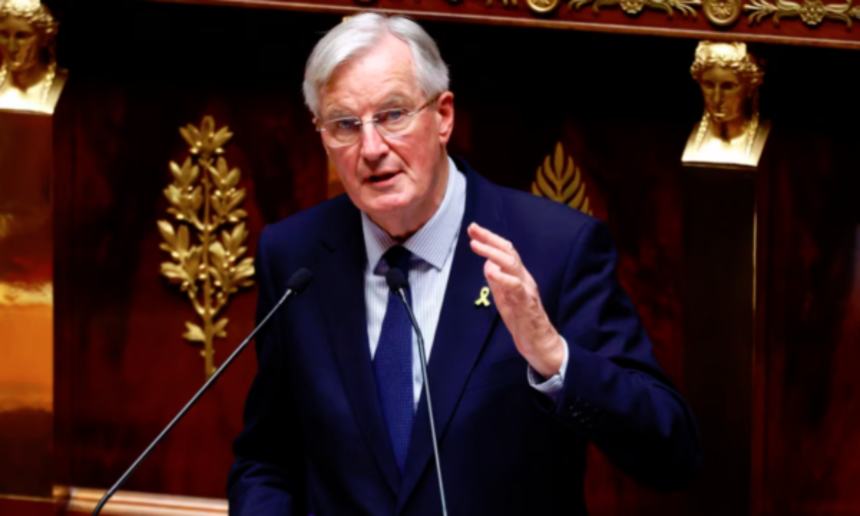Left-wing and right-wing parties in France are set to unite on Wednesday in a vote of no confidence against the government of Prime Minister Michel Barnier. This motion was triggered by disagreements over the budget, and if approved, it will mark the first time in 60 years that a French government is toppled in this manner.
President Emmanuel Macron insists that he will complete his mandate until 2027 despite mounting opposition calls for his resignation due to ongoing unrest. However, Macron will need to appoint a new prime minister for the second time after his party’s defeat in the parliamentary elections in July.
While returning from a visit to Saudi Arabia, Macron dismissed calls for his resignation as “political illusions,” according to French media reports.
“I am here because the French people voted for me twice,” Macron declared. He also remarked, “We should not scare people with these things. We have a strong economy.”
The vote of no confidence follows strong opposition to the proposed budget by Prime Minister Barnier. The lower house of the French parliament is divided, with no single party holding a majority. It consists of three main blocs: Macron’s centrist allies, the left-wing coalition, the People’s Front, and the far-right National Rally. The two opposition blocs, typically in conflict, have now united against Barnier, accusing him of imposing austerity measures and failing to address the needs of the people.
Prime Minister Barnier, a conservative politician, was appointed in September, and if the motion passes, he will become the shortest-serving prime minister in modern French history.
In a last-ditch effort to save his government, Barnier urged lawmakers to act “responsibly” and consider the “interests of the country.”
“The situation is very difficult in terms of the economy, society, the budget, and finance,” he said in an interview on national TV channels TF1 and France 2. “If the vote of no confidence passes, everything will become more difficult and much more serious.”
On Wednesday morning, National Rally leader Jordan Bardella – whose party’s support was crucial to keeping Barnier in power – confirmed his backing for the motion, calling the budget “insufficient and harmful” to the French people. Left-wing party leaders echoed similar criticisms, calling for an increase in social spending.
The French National Assembly has announced that at least 288 out of 574 votes are required to pass the motion. The left-wing and far-right blocs have more than 330 lawmakers, though some may abstain.
If Prime Minister Barnier’s government falls, President Macron will need to appoint a new prime minister, but the fragmented composition of parliament will remain unchanged. Meanwhile, parliamentary elections cannot be held until at least July, creating a potential deadlock for policymakers.
Although France does not face the threat of a government shutdown, as in the United States, the lack of political stability could destabilize financial markets. Barnier warned last week of “a major storm and serious turmoil in financial markets” if his government falls.
The European Union is pressuring France to reduce its high public debt. The budget deficit is expected to reach 6% of GDP this year, with analysts predicting it could rise to 7% next year unless drastic changes are made.
The absence of political stability could lead to rising interest rates in France, further exacerbating the country’s debt. /VOA







